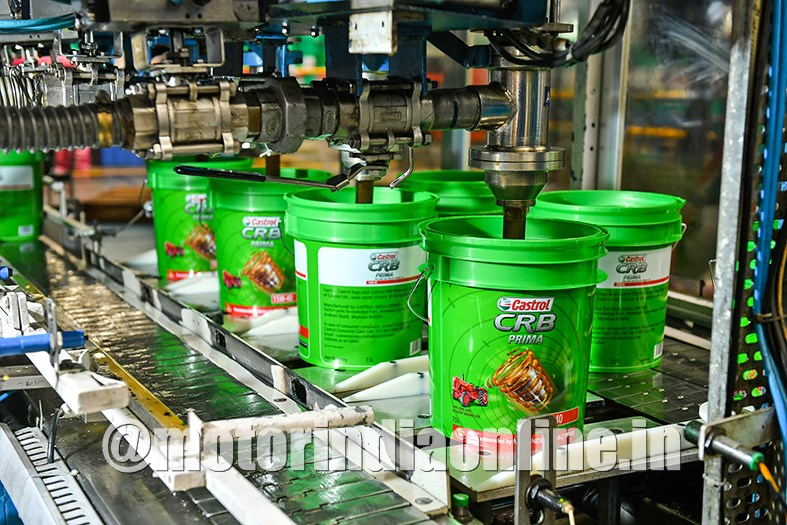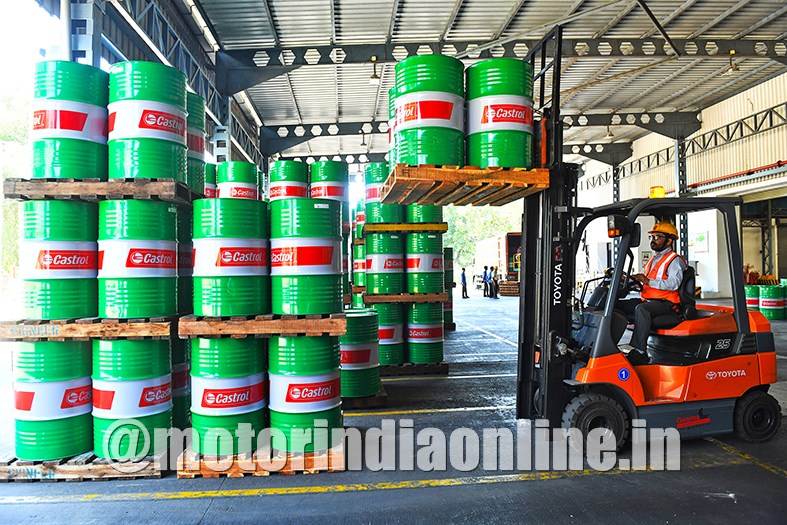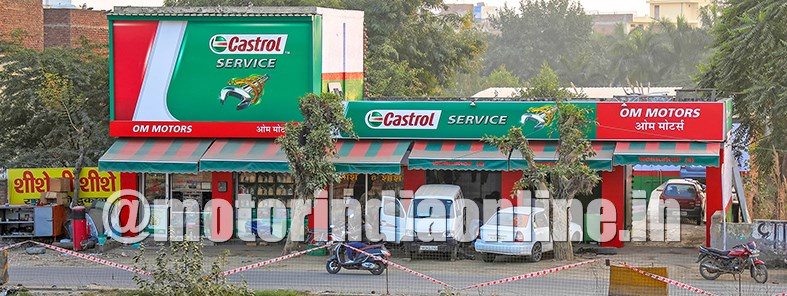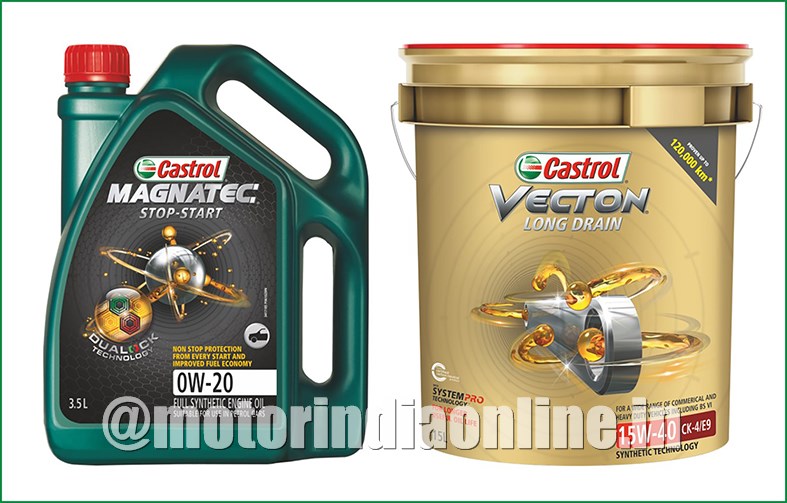Revealing its new BS-VI products specially formulated for the Indian market, Castrol India has reinforced its commitment in leading the change. Rajesh Rajgor speaks to the company’s Vice President (Marketing), Kedar Apte about the company’s approach to changing technologies across various segments

Over the last 100 years, Castrol India has been at the forefront of the Indian lubricant industry, recognised as a pioneer, innovator and leader, besides being the only lubricant company which has had an uninterrupted presence in the country over this period, with three manufacturing plants located at Silvassa in Dadra Nagar Haveli, Patalganga in Maharashtra, and Paharpur in West Bengal. Together, the plants produce several million litres of lubricants with the ability to leverage additional capacities, which are outsourced to meet current and future needs. Thus, when it came to leap-frog from BS-IV to BS-VI, they were cognisant of how the OEMs were moving in terms of their engine technologies and were prepared with many formulations on account of their global presence.
Given the fact that the Indian road conditions and quality of fuel required was going to be different, Castrol India worked on reformulation to suit the lower SAPs with lighter lubricants’ requirement for India. Stringent technological efforts, over the past 18-24 months, propelled the company into re-launching their existing BS-IV products in the BS-VI form, while remaining competitive in a very cost-conscious market and maintaining durability in some very demanding driving conditions.
Commenting on this development, Kedar Apte, Vice President (Marketing), Castrol India, says: “Across all our categories we are ready with BS-VI products and these products are also largely backward compatible which means they can also be used for BS-IV engines.”
“This is keeping in mind that even in the next two years the proportion of BS-VI vehicles on the roads is going to be limited. The strategy also takes note of the fact that we are a strong player in the automotive aftermarket, where vehicles stay in the franchise workshop for a couple of years and then move to the aftermarket. It may take some of these vehicles one and a half years to come into the aftermarket. Hence, it was also important for us, as a leading brand, to do justice to the current BS-IV vehicles on road,” he adds.
Improving efficiency
While one aspect of the evolving emissions legislation in India is to curb pollution, another important aspect to factor in is improving vehicle efficiency. As the BS-VI development cycle for commercial vehicles has been a bit different and complex as compared to passenger vehicles and two-wheelers, Castrol India worked with OEMs and understood the requirement of DEF. “We looked at our product development in other countries and brought Castrol Vecton Long Drain 15W40 CK4 truck engine oil in 2019. Along with that we introduced Castrol DEF to upgrade our portfolio for BS-VI,” Apte informs.
Castrol Vecton Long Drain is advanced part-synthetic, heavy-duty diesel engine oil that is specifically engineered to deliver longer useful oil life. It is suitable for use in high-speed four-stroke diesel engines and is compatible with diesel engines fitted with an EGR. It is also compatible with the latest exhaust after-treatment systems such as DPF, DOC and SCR. On similar lines, Castrol India launched the Maruti Ecstar 0W16 exclusively for Maruti Suzuki, Castrol Magnatec for SUVs and Castrol Power 1 for bikes for BS-VI with reverse compatibility. Being on course with the changing technology has helped Castrol India be the first mover in many areas. “When two-wheelers changed from two to four strokes, we were the first to enter that segment and gain advantage. When gearless scooters started expanding a decade ago, we were the first lubricant player to launch a customised lubricant for a gearless scooter – till then consumers were using engine oils for bikes as well as gearless scooters,” Apte says.
“We were also the first one to launch special engine oil for mini trucks as we realised early on that the drive train for SCVs is different from MHCV and would require customised products,” he adds. One important aspect that saw Castrol India achieve a leadership position is their proactive collaborations with OEMs. “At any given time there are different projects in the pipeline where we do innovation work with OEMs. This helps us bring out products that are ahead of the competition. It involves technology teams from India working on engines, testing and sending them to our UK-based research and development centre for feedback and improvements,” Apte reveals.
Managing the change
Even though the overall credit crunch and slowdown in the market has limited the ability of distributors and dealers, Castrol India continues to manage 350 distributors and cater to over 1,00,000 retail and independent outlets across India. “We are not deeply affected given our focus not only on new vehicles but also on the vehicles that are on the road. Hence, despite the reduction in the sale of new vehicles, the vehicle population on road is still sustaining our growth. We are optimistic of further growth as the penetration of personal mobility vehicles is still very small compared to China, Thailand or Malaysia,” Apte points out.
Needless to add, Castrol India is poised to gain in strength and market presence when the downturn is over given its preparation and ability to invest and sustain in innovation and its multinational presence. In addition, the company has a comprehensive and innovative outreach programme to connect and engage with key consumers, customers and influencers. Recently, Castrol India’s on ground activation program, Udaan, involved over 1,00,000 engagements with truck owners, drivers, mechanics and dealers. The company’s activation program for tractor owners reached 1,30,000 consumers in 2019 in over 2,500 villages, 380 local produce markets and 2,200 retailers in order to reinforce the brand proposition.
Ahead of the curve
As the engineering in electric vehicles evolves with focus on hybrid and fully electric vehicles, it shall present technical challenges in the areas of transmission fluids, battery coolants and greases. Responding to a question about how Castrol India is placed to tackle such developments, Apte states: “We are watching the trends and at the given rate of EVs’ projection around the world, and more importantly in India, we at Castrol India are sure that at least for the next 20 years, lubricants for IC engine will keep on growing and will be required. India has a lot of catching up to do with other countries in the electrification journey and we are aware of the investment that will have to be made and the understanding we will have to acquire.”
“BP, our parent company, has already done a lot of strategic investments with a company called Charge Master in the UK with a player called DiDi in China, which is the largest electrification company for automotives. Such collaborations shall keep us prepared and on top of the trends,” he adds.
Clearly, Castrol India is a very strong brand and has a strong distribution network through which it can leverage the largest of opportunities and changes around the automotive ecosystem to be on course with the transformations taking place, at times at an astonishingly rapid pace.



